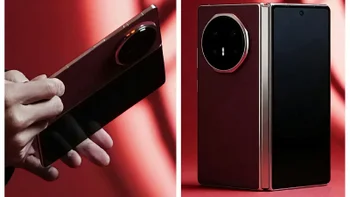Research In Motion licences technology from Microsoft to better handle HD video, large file transfers

Research in Motion, the Canadian company making the BlackBerry, has signed a licensing agreement with Microsoft over exFAT, a system that would allow faster and more efficient transfer of media files between devices.
The system is expected to arrive as part of BlackBerry 10, RIM’s mobile operating system expected to make a debut on mass market smartphones launching around January 2013.
RIM’s newly acquired system "facilitates large files for audiovisual media and enables seamless data portability and an easy interchange between desktop PCs and other electronic devices," Microsoft explained in a press release.
The biggest question with the BlackBerry 10 release is whether RIM will manage to overcome its position of a company more friendly to businesses than users. The new system will allow RIM to better handle HD video and have its devices communicate easier with Windows-based computers.
“RIM is girding itself for the BlackBerry 10 launch and future BlackBerry 10 sales and it’s defending itself against any potential legal issues ... Most importantly, it allows users to more easily move around large files,” Kevin Restivo, a mobile device analyst with global research firm IDC said.
source: Microsoft
Microsoft Signs Licensing Agreement With Research In Motion
exFAT file technology helps mobile industry leader provide cutting-edge capabilities to customers.
REDMOND, Wash., Sept. 18, 2012 /PRNewswire/ -- Microsoft Corp. announced today that Microsoft and Research In Motion (RIM) have signed a patent licensing agreement that gives RIM broad access to the latest Extended File Allocation Table (exFAT) for certain BlackBerry® devices of RIM. exFAT is a modern file system from Microsoft that facilitates large files for audiovisual media and enables seamless data portability and an easy interchange between desktop PCs and other electronic devices.
(Logo:http://photos.prnewswire.com/prnh/20000822/MSFTLOGO)
exFAT improves on its predecessor, the FAT system, and greatly expands the size of files that flash memory devices can handle by five times over previous FAT technology. It also increases the speed with which those files can be accessed. The exFAT file system not only facilitates large files for use of audiovisual media, it enables seamless data portability and an easy interchange between desktop PCs and a variety of electronic devices.
"Today's smartphones and tablets require the capacity to display richer images and data than traditional cellular phones," said David Kaefer, general manager of Intellectual Property (IP) Licensing at Microsoft. "This agreement with RIM highlights how a modern file system, such as exFAT can help directly address the specific needs of customers in the mobile industry."
Microsoft's Commitment to Intellectual Property Collaboration
Microsoft offers flexible IP licensing programs that give companies access to many of the foundational technologies in its own products, allowing those companies to build devices, applications and services that work seamlessly with each other.
Since Microsoft launched its IP licensing program in December 2003, the company has entered into more than 1100 licensing agreements and continues to develop programs that make it possible for customers, partners and competitors to access its IP portfolio. The program was developed to open access to Microsoft's significant R&D investments and its growing, broad patent and IP portfolio.
Microsoft has entered into similar licensing agreements with several leading consumer electronics manufacturers through its IP licensing program, including Panasonic Corp., SANYO Electric Company Ltd., Sony Corp. and Canon Inc.
More information on Microsoft's IP licensing program is available athttp://www.microsoft.com/iplicensing, and information specifically related to Microsoft's exFAT licensing program is available athttp://www.microsoft.com/about/legal/en/us/intellectualproperty/iplicensing/programs/exfatfilesystem.aspx.
Founded in 1975, Microsoft (Nasdaq "MSFT") is the worldwide leader in software, services and solutions that help people and businesses realize their full potential.
RIM’s newly acquired system "facilitates large files for audiovisual media and enables seamless data portability and an easy interchange between desktop PCs and other electronic devices," Microsoft explained in a press release.
“RIM is girding itself for the BlackBerry 10 launch and future BlackBerry 10 sales and it’s defending itself against any potential legal issues ... Most importantly, it allows users to more easily move around large files,” Kevin Restivo, a mobile device analyst with global research firm IDC said.
Microsoft Signs Licensing Agreement With Research In Motion
exFAT file technology helps mobile industry leader provide cutting-edge capabilities to customers.
REDMOND, Wash., Sept. 18, 2012 /PRNewswire/ -- Microsoft Corp. announced today that Microsoft and Research In Motion (RIM) have signed a patent licensing agreement that gives RIM broad access to the latest Extended File Allocation Table (exFAT) for certain BlackBerry® devices of RIM. exFAT is a modern file system from Microsoft that facilitates large files for audiovisual media and enables seamless data portability and an easy interchange between desktop PCs and other electronic devices.
(Logo:http://photos.prnewswire.com/prnh/20000822/MSFTLOGO)
exFAT improves on its predecessor, the FAT system, and greatly expands the size of files that flash memory devices can handle by five times over previous FAT technology. It also increases the speed with which those files can be accessed. The exFAT file system not only facilitates large files for use of audiovisual media, it enables seamless data portability and an easy interchange between desktop PCs and a variety of electronic devices.
"Today's smartphones and tablets require the capacity to display richer images and data than traditional cellular phones," said David Kaefer, general manager of Intellectual Property (IP) Licensing at Microsoft. "This agreement with RIM highlights how a modern file system, such as exFAT can help directly address the specific needs of customers in the mobile industry."
Microsoft's Commitment to Intellectual Property Collaboration
Microsoft offers flexible IP licensing programs that give companies access to many of the foundational technologies in its own products, allowing those companies to build devices, applications and services that work seamlessly with each other.
Since Microsoft launched its IP licensing program in December 2003, the company has entered into more than 1100 licensing agreements and continues to develop programs that make it possible for customers, partners and competitors to access its IP portfolio. The program was developed to open access to Microsoft's significant R&D investments and its growing, broad patent and IP portfolio.
Microsoft has entered into similar licensing agreements with several leading consumer electronics manufacturers through its IP licensing program, including Panasonic Corp., SANYO Electric Company Ltd., Sony Corp. and Canon Inc.
More information on Microsoft's IP licensing program is available athttp://www.microsoft.com/iplicensing, and information specifically related to Microsoft's exFAT licensing program is available athttp://www.microsoft.com/about/legal/en/us/intellectualproperty/iplicensing/programs/exfatfilesystem.aspx.
Founded in 1975, Microsoft (Nasdaq "MSFT") is the worldwide leader in software, services and solutions that help people and businesses realize their full potential.
Follow us on Google News














Things that are NOT allowed:
To help keep our community safe and free from spam, we apply temporary limits to newly created accounts: